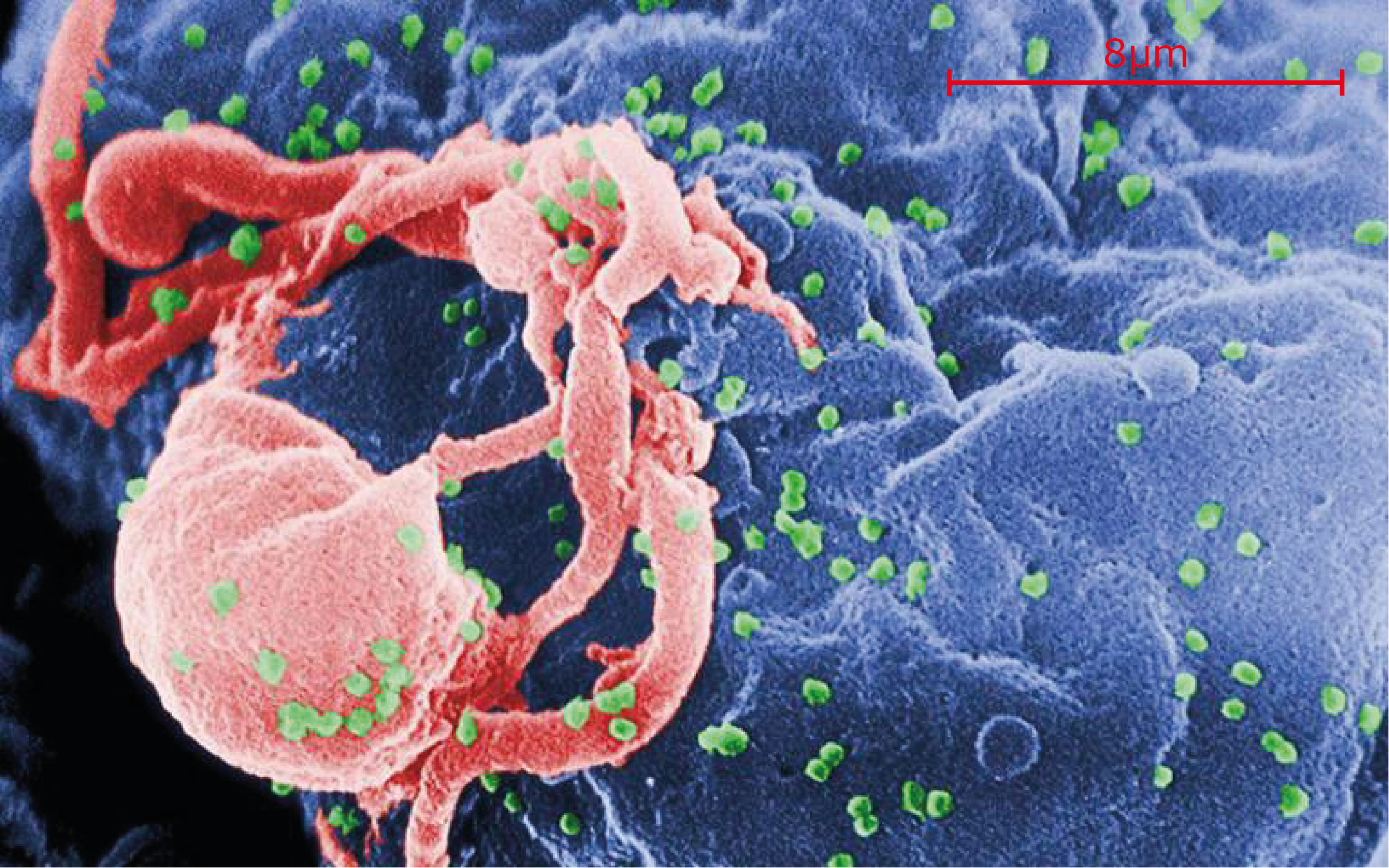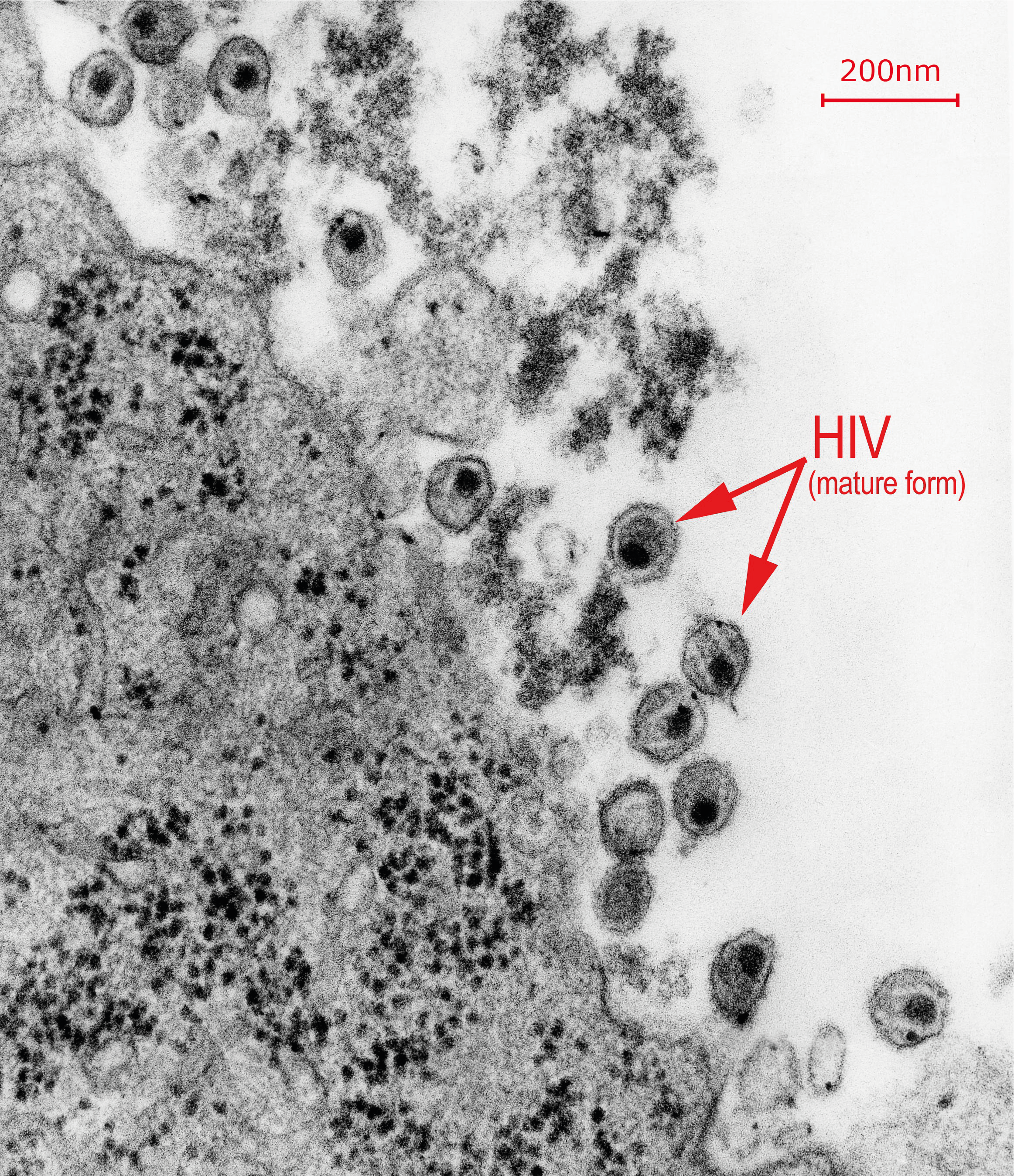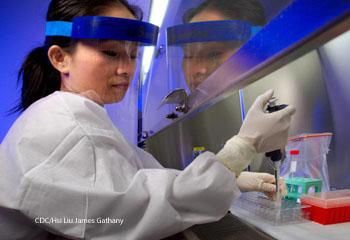This topic takes on average 55 minutes to read.
There are a number of interactive features in this resource:
 Biology
Biology
Acquired Immune Deficiency Syndrome (AIDS) is the medical term for a combination of illnesses that result when the immune system is weakened or destroyed. It is the advanced form of Human Immunodeficiency Virus (HIV), an infection that attacks the immune system, making the sufferer susceptible to other diseases. The human immune system is made up of special cells which protect the body from infection. Normally when a virus enters the body, the immune produce antibodies which destroy or inactivate the pathogen. The immune systems of sufferers of HIV/AIDS do not function in this way because the virus attacks and affects the immune cells themselves.

HIV, the virus that leads to AIDS, can be spread through four bodily fluids:
HIV cannot be transmitted from an infected person to you through coughing, sneezing, nose bleeds, sweat and tears, eating utensils, hugging, touching, shaking hands, sharing beds, toilets, swimming pools or mosquito bites. Neither can it be transmitted through living or going to school with an infected person.
The virus can only be spread from an infected person if their bodily fluids enter the bloodstream of an uninfected person. Sexual transmission occurs through unprotected heterosexual or homosexual sex with an infected partner. An HIV infected mother can infect her baby during pregnancy, at birth or through breast feeding. This is called vertical transmission. Blood to blood transmission can occur if infected blood is accidentally transfused to an infected patient. Transmission by non-sterile equipment, sharing non-sterilised needles or syringes (or razors), may also lead to infection. Needles used for injecting narcotics, medicine, in tattooing or piercing may also transmit blood contaminated with HIV.
An individual can become infected from only one exposure. Once infected you can infect others.

There are four main stages to the progression of HIV/AIDS. The first stage appears 3-12 weeks after you have become infected. In this before any symptoms show it may not be possible to detect the infection with a test. This is because the body has not produced enough antibodies to be picked up by a test. The test results will therefore show a false negative. People who think they may have been infected and receive a negative test result should do a second test three months later to be absolutely sure of their HIV status. During the waiting period they should either abstain from sex or use a condom properly at all times so as not to risk exposure to the virus, or risk infecting anyone else.
After about three months some people start to feel unwell – symptoms include fevers, headaches, tiredness, and swollen glands, but not everyone infected with HIV feels ill. But by about 3 months after infection, HIV antibodies appear in your blood - you become HIV positive
About 10% of people will rapidly progress to from HIV infection to full blown AIDS in 2-3 years, but it can take 20 years or more before the symptoms of the disease begin to appear if modern drugs are used to keep it under control.
During this time the virus replicates rapidly, infecting the cells of the immune system.
As the immune system weakens, an infected person may develop persistent signs and symptoms (relatively mild at first), including swollen lymph glands, night sweats, fever, cough, diarrhoea, and/or weight loss.
The clinical signs and symptoms of the final stages of the AIDS include:
AIDS is caused by the human immunodeficiency virus (HIV). The virus mutates frequently, this makes development of a vaccine very difficult. There is currently no effective vaccine to prevent HIV infection.
Anti-HIV medications do not cure HIV infection and individuals taking these medications can still transmit HIV to others. They can however lengthen the time an infected person can enjoy a healthy, active life. The earlier the drugs are started, the more effectively they lengthen the lifespan of an HIV positive individual.

Scientist working on lab workbench.
The most effective ways of reducing or halting the spread of HIV/AIDS involve changing the way people behave, particularly in sexual relationships.
Most of all, people around the world need to be educated about the risks of HIV/AIDS, how it is passed on and how to avoid it.